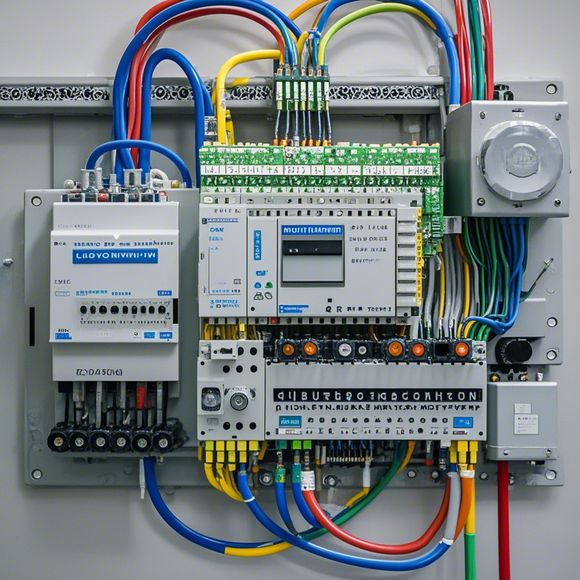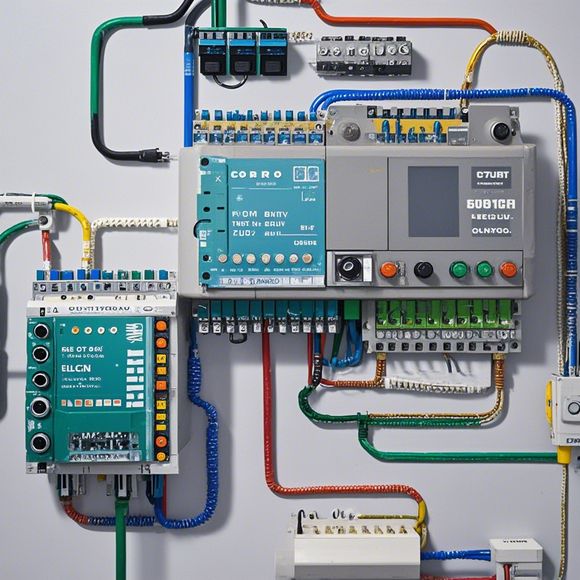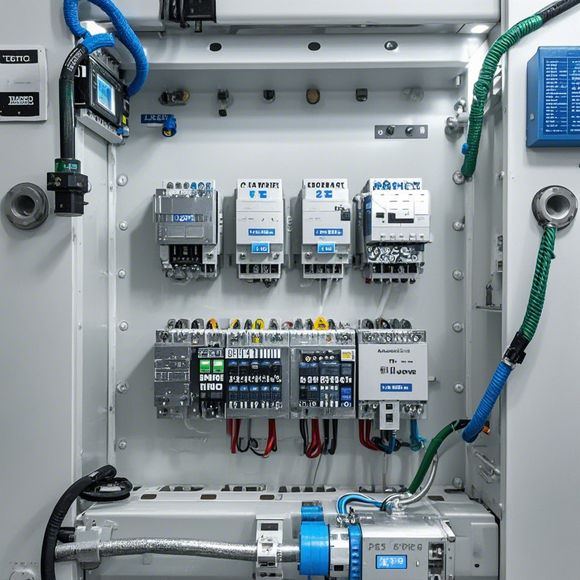PLC控制器在现代工业自动化中扮演的角色,从基础到进阶解析
PLC控制器在现代工业自动化中扮演着关键的角色。从基础层面来看,PLC控制器是一种用于控制和监控工业过程的电子设备,通过编程实现对生产线、设备等的自动化管理。它可以接收来自传感器的信号,并根据预设的程序进行逻辑判断和处理,从而实现对生产流程的精确控制。随着技术的不断进步,PLC控制器的功能和应用也在不断扩展。从进阶层面来看,PLC控制器已经不仅仅局限于传统的工业生产领域,还涉及到了能源、交通、环保等多个领域。在能源领域,PLC控制器可以实现对电力系统的监控和优化;在交通领域,PLC控制器可以用于自动驾驶汽车的控制;在环保领域,PLC控制器可以用于监测环境污染并采取相应的措施。
Title: Introduction to PLC (Programmable Logic Controller) in Modern Industrial Automation
In the realm of modern industry and manufacturing, there's an understated yet critical component that drives efficiency and accuracy—the programmable logic controller (PLC). This device isn't just a simple relay; it's a sophisticated piece of hardware designed to interface with digital systems. It's the heartbeat of automation systems that are at the core of today's industrial production lines. So, let's dive deep into the world of PLCs and understand their significance in driving productivity.

What is a PLC?
A PLC is a microprocessor-based computer system that can be programmed to perform various functions. Unlike a traditional mechanical relay, PLCs are programmable, allowing for precise control over electrical circuits. They come in various forms depending on application requirements, from single-board devices to complex rack-mount systems capable of handling large data volumes.
Why use PLCs?
The primary reason behind the popularity of PLCs in industrial automation is their ability to handle high-speed, real-time data processing. With their built-in memory and processor power, PLCs can process signals in milliseconds, ensuring that the machinery operates as expected. This precision is crucial in industries like automotive, aerospace, and pharmaceuticals where even the slightest deviation from the target can lead to catastrophic consequences.
How do they work?
PLCs operate by interfacing with sensors, actuators, and other digital devices. When a signal is detected or generated, it's processed by the PLC, which then sends out commands to the relevant hardware. For instance, if a temperature sensor detects an increase in heat, the PLC would quickly adjust the cooling system to maintain optimal working conditions. This responsiveness is key to ensuring continuous product quality and safety.

Integration with Other Systems
PLCs aren't just standalone devices; they can be easily integrated with other systems like computers, mobile devices, and cloud platforms. This integration enables remote monitoring and control, enabling operators to stay updated on the status of machines from any location. Additionally, the data collected through PLCs can be analyzed using powerful software tools to identify patterns and predict future behavior, further enhancing efficiency and productivity.
Cost-effectiveness
While initially more expensive than traditional relays, PLCs offer significant cost savings in the long run due to their ability to save energy and reduce downtime. By reducing maintenance costs and increasing operational efficiency, PLCs can pay for themselves in just a few years. Furthermore, their modular design allows for easy expansion or replacement without having to invest in a complete overhaul of the system, making them an attractive option for businesses looking for long-term value.
Efficiency & Safety
In industries where safety and reliability are paramount, PLCs are a must-have. They eliminate the risk of human error by automatically controlling processes, preventing accidents caused by human mishandling. Additionally, by providing real-time feedback and monitoring, PLCs ensure that operations remain within acceptable limits, minimizing potential hazards.

Conclusion
In conclusion, PLCs are transformative tools for modern industrial automation, offering unparalleled precision, responsiveness, and cost-effectiveness. As industries continue to evolve and adopt new technologies, PLCs will play an increasingly important role in driving efficiency, productivity, and ultimately, profitability. Whether you're a small business owner or a large corporation, investing in PLC solutions is a wise move towards future-proofing your operations and staying one step ahead of the competition.
Content expansion reading:
Articles related to the knowledge points of this article:
PLC Controller for Manufacturing Automation
How to Use a PLC Controller for Your Business
PLC (Programmable Logic Controller) Control System Basics
Plumbers Rule! The Role of PLC Controllers in the World of Waterworks
The Role of Programmable Logic Controllers (PLCs) in Foreign Trade Operations